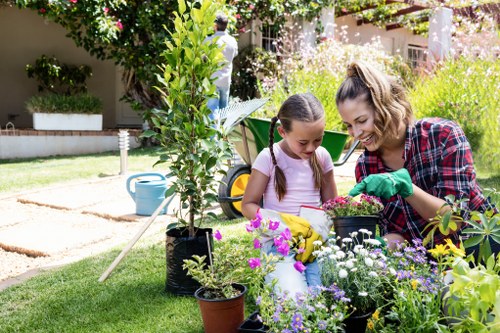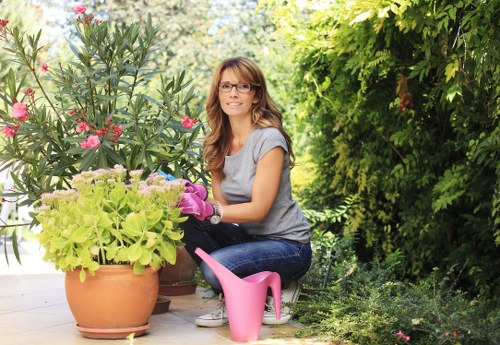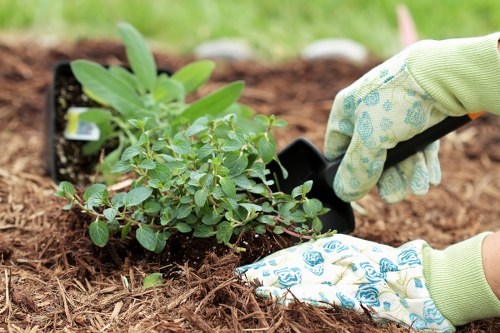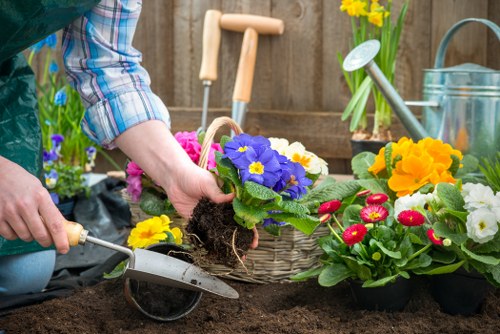Gardener Newbury Park: Your Ultimate Guide to a Thriving Garden

Maintaining a beautiful garden in Newbury Park is a rewarding endeavor. Whether you're a seasoned gardener or just starting, understanding the unique climate and soil conditions can make all the difference. In this guide, we'll explore essential tips and techniques to help your garden flourish.
Newbury Park's Mediterranean climate offers mild, wet winters and hot, dry summers. This weather pattern influences the types of plants that thrive here. Selecting the right plants is crucial for a sustainable and vibrant garden.
Soil quality is another important factor. Conducting a soil test can provide insights into the nutrient levels and pH balance of your garden soil. Based on the results, you can amend the soil to create an optimal growing environment.
Choosing the Right Plants for Newbury Park

When selecting plants for your Newbury Park garden, consider native species that are adapted to the local climate. Native plants require less water and are more resistant to pests and diseases.
Some popular native plants include California poppies, lavender, and manzanita. These plants not only add beauty but also support local wildlife, such as bees and butterflies.
Incorporating a mix of perennials and annuals can provide year-round interest. Perennials come back each year, reducing the need for replanting, while annuals add vibrant colors and variety to your garden.
Watering Strategies for a Sustainable Garden

Efficient watering is essential in Newbury Park's climate. Implementing drip irrigation systems can deliver water directly to the plant roots, minimizing evaporation and water waste.
Mulching is another effective technique. Applying a layer of mulch around your plants helps retain moisture, regulate soil temperature, and suppress weeds.
Watering early in the morning reduces water loss due to evaporation and allows plants to absorb moisture before the day heats up. Consistent watering schedules promote healthy plant growth.
Soil Preparation and Maintenance

Preparing your soil is the foundation of a successful garden. Start by removing any weeds and debris from the planting area. Loosen the soil to improve aeration and drainage.
Adding organic matter, such as compost or aged manure, enriches the soil with essential nutrients. This also enhances the soil structure, making it easier for plant roots to grow.
Regularly testing your soil helps monitor nutrient levels and pH balance. Adjusting the soil based on test results ensures that your plants receive the necessary nutrients for optimal growth.
Pest Management and Disease Prevention

Keeping pests and diseases at bay is vital for a healthy garden. Implementing integrated pest management (IPM) strategies can effectively control pest populations while minimizing environmental impact.
Encouraging beneficial insects, such as ladybugs and predatory beetles, helps naturally manage pest populations. Additionally, practicing crop rotation reduces the risk of soil-borne diseases.
Regularly inspecting your plants for signs of pests or diseases allows for early intervention. Promptly addressing issues prevents them from spreading and causing significant damage.
Local Relevance: Nearby Areas to Newbury Park
Newbury Park is surrounded by several charming communities, each offering unique features for gardeners. Here are some of the closest areas:
- Thousand Oaks: Just a short drive away, Thousand Oaks boasts numerous botanical gardens and nurseries.
- Agoura Hills: Known for its lush landscapes, Agoura Hills provides ample opportunities for outdoor gardening enthusiasts.
- Simi Valley: Simi Valley offers community gardens and extensive parks perfect for gardening projects.
- Westlake Village: This area features beautiful residential gardens and horticultural centers.
- Agua Dulce: A serene area with spacious land ideal for larger gardening endeavors.
- Newbury Park North: Close to the main area, it offers additional green spaces and gardening resources.
- Newbury Park South: Similar to the north, it provides more areas for planting and garden maintenance.
- Placentia: A bit further out, Placentia has a rich gardening community with various events and workshops.
- Calabasas: Known for its upscale gardens and well-maintained public spaces.
- Woodland Hills: Offers a mix of residential and community gardens for diverse gardening activities.
Seasonal Gardening Tips for Newbury Park

Adapting your gardening practices to the seasons ensures year-round plant health and productivity. Here's a breakdown of seasonal tasks:
- Spring: Begin planting new seeds and transplanting seedlings. Prune any dead branches and prepare beds for the growing season.
- Summer: Focus on watering, weeding, and pest control. Mulch to retain moisture and regulate soil temperature.
- Fall: Harvest remaining produce and prepare plants for winter. Add compost to enrich the soil for the next season.
- Winter: Protect sensitive plants from frost and plan your garden layout for spring. Prune dormant plants to encourage healthy growth.
Tools Every Gardener Needs

Having the right tools makes gardening tasks easier and more efficient. Essential gardening tools include:
- Hand Trowel: Perfect for digging small holes and transplanting seedlings.
- Pruning Shears: Ideal for trimming and shaping plants.
- Watering Can or Hose: Ensures plants receive adequate water.
- Gloves: Protect your hands from thorns, dirt, and potential irritants.
- Garden Fork: Useful for turning and aerating the soil.
Investing in high-quality tools can enhance your gardening experience and longevity of the tools.
Creating a Sustainable Garden

Sustainability in gardening not only benefits the environment but also ensures the long-term health of your garden. Here are some practices to adopt:
- Composting: Transform kitchen scraps and yard waste into nutrient-rich compost to improve soil fertility.
- Rainwater Harvesting: Collect and store rainwater for irrigation, reducing reliance on municipal water sources.
- Natural Fertilizers: Use organic fertilizers to nourish plants without harmful chemicals.
- Native Plants: As mentioned earlier, native plants require less maintenance and support local ecosystems.
Gardening for Health and Well-being

Gardening offers numerous health benefits, including physical exercise, stress reduction, and enhanced mental well-being. Engaging in regular gardening activities can lead to improved mood and overall health.
Creating a peaceful garden space provides a sanctuary for relaxation and reflection. Incorporating elements like a seating area or a water feature can enhance the therapeutic aspects of your garden.
Gardening also fosters a sense of accomplishment and connection to nature, contributing to a more fulfilling lifestyle.
Conclusion

Gardening in Newbury Park is a fulfilling pursuit that combines beauty, sustainability, and personal well-being. By selecting the right plants, maintaining proper soil and watering practices, and embracing sustainable techniques, you can create a thriving garden that stands the test of time.
Remember to take advantage of the local resources and nearby areas to enhance your gardening journey. With dedication and care, your Newbury Park garden will become a vibrant and cherished space for years to come.
Frequently Asked Questions
1. What are the best native plants for Newbury Park gardens?
Answer: Some of the best native plants include California poppies, lavender, manzanita, and sage. These plants are well-suited to the local climate and require less maintenance.
2. How often should I water my garden in Newbury Park?
Answer: It's best to water early in the morning to reduce evaporation. During the hot summer months, watering 2-3 times a week is typically sufficient, depending on the specific plants and soil conditions.
3. How can I improve the soil quality in my garden?
Answer: Conduct a soil test to determine nutrient levels and pH balance. Add organic matter like compost or aged manure to enrich the soil and improve its structure.
4. What are some sustainable gardening practices I can adopt?
Answer: Sustainable practices include composting, rainwater harvesting, using natural fertilizers, and planting native species. These methods help reduce environmental impact and promote a healthy garden ecosystem.
5. How can I attract beneficial insects to my garden?
Answer: Plant flowers that attract bees, butterflies, and ladybugs, such as marigolds and sunflowers. Providing habitats like insect hotels and avoiding pesticide use also encourages beneficial insect populations.